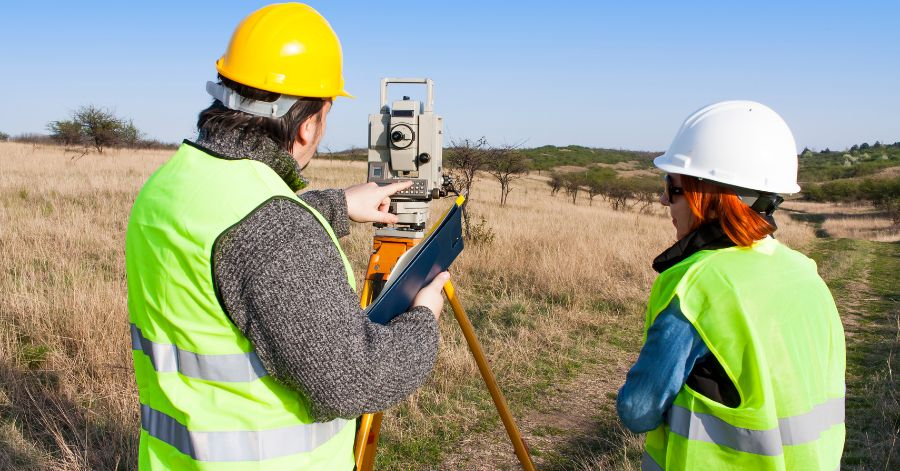Investing in real estate is not just about finding the perfect location or securing a beautiful property. It’s also about understanding the intricacies that can affect its long-term value. One such crucial element often overlooked is the impact of elevation certificates on property values. In this blog, we’ll explore how these certificates play a pivotal role in wise real estate investment.

1. The Foundation of Flood Risk Assessment
Elevation certificates serve as the foundation for assessing flood risk associated with a property. By detailing the elevation of a structure about the Base Flood Elevation (BFE), these certificates provide valuable information about the potential exposure to flooding. This data is not only crucial for homeowners but also impacts property values in flood-prone areas.
2. Mitigating Risk and Insurance Costs
Understanding flood risk allows property owners to take appropriate measures to mitigate potential damage. Properties with lower flood risk, as indicated by elevation certificates, may enjoy lower insurance premiums. This, in turn, enhances the property’s appeal to potential buyers and positively influences its market value.
3. Legal Compliance and Market Perception
In many areas, obtaining an elevation certificate is not just a recommendation but a legal requirement. Properties that comply with these regulations are perceived as safer investments. Buyers are often willing to pay a premium for a property with proper documentation, as it demonstrates a commitment to safety and adherence to local regulations.
4. Resale Value and Appraisal Considerations
Elevation certificates play a crucial role in the resale value of a property. When it comes to appraisal, certified information about a property’s elevation can contribute positively to its overall valuation. Savvy buyers and sellers recognize the importance of this data in determining fair market value, influencing negotiations, and ensuring a smooth transaction process.
5. Future-Proofing Investments
Climate change and its associated impacts, including rising sea levels and increased flood risks, are becoming more evident. Properties armed with elevation certificates are better positioned to weather these challenges. As environmental consciousness grows, having a property with documented elevation data becomes a proactive step toward future-proofing investments.
How Do I Get an Elevation Certificate
- Hire a Licensed Land Surveyor: Start by hiring a licensed land surveyor with experience in conducting elevation surveys. Make sure they understand the rules and specifications specific to the area.
- Schedule the Survey: Work with the surveyor to schedule the elevation survey. They will assess the property’s elevation about the Base Flood Elevation (BFE) and other relevant benchmarks.
- Provide Property Access: Grant the surveyor access to the entire property, including the interior of the structure. They may need to measure the elevation of the lowest floor of the building.
- Survey Process: The surveyor will use specialized equipment to measure the property’s elevation accurately. This may involve taking elevation shots at various points on the property.
- Documentation and Certification: Once the survey is complete, the land surveyor will compile the data and create the elevation certificate. This document includes essential information about the property’s elevation and flood risk.
- Submit to Local Authorities: In some cases, the elevation certificate must be submitted to local authorities or the Federal Emergency Management Agency (FEMA) for compliance purposes.
- Keep a Copy for Your Records: Retain a copy of the elevation certificate for your records and provide copies to relevant parties, such as insurance companies or potential buyers.
By following these steps, property owners can obtain a comprehensive elevation certificate, laying the groundwork for informed decision-making, risk mitigation, and ultimately, wise real estate investment.
Benefits of Elevation Certificates:
- Accurate Risk Assessment: Elevation certificates provide precise data for assessing flood risk, allowing property owners to make informed decisions about risk mitigation.
- Insurance Savings: Properties with lower flood risk, as determined by elevation certificates, may qualify for lower insurance premiums, resulting in cost savings over time.
- Legal Compliance: Obtaining an elevation certificate ensures compliance with local regulations, enhancing the property’s legal standing and market desirability.
- Enhanced Resale Value: Certified elevation information positively influences property appraisals and resale values, attracting discerning buyers willing to invest in a well-documented property.
- Long-Term Investment Protection: As climate-related risks increase, having an elevation certificate becomes a proactive measure to safeguard property investments against future challenges.
Conclusion
In the realm of real estate, knowledge is power, and elevation certificates are a powerful tool for both buyers and sellers. By understanding the impact of these certificates on property values, appreciating their associated benefits, and following the necessary steps to obtain them, investors can make informed decisions, mitigate risks, and position their assets strategically in the market. Whether you’re a homeowner or an investor, recognizing the significance of elevation certificates and actively engaging in the certification process is a key step in ensuring a wise and resilient investment in the ever-evolving landscape of real estate.
